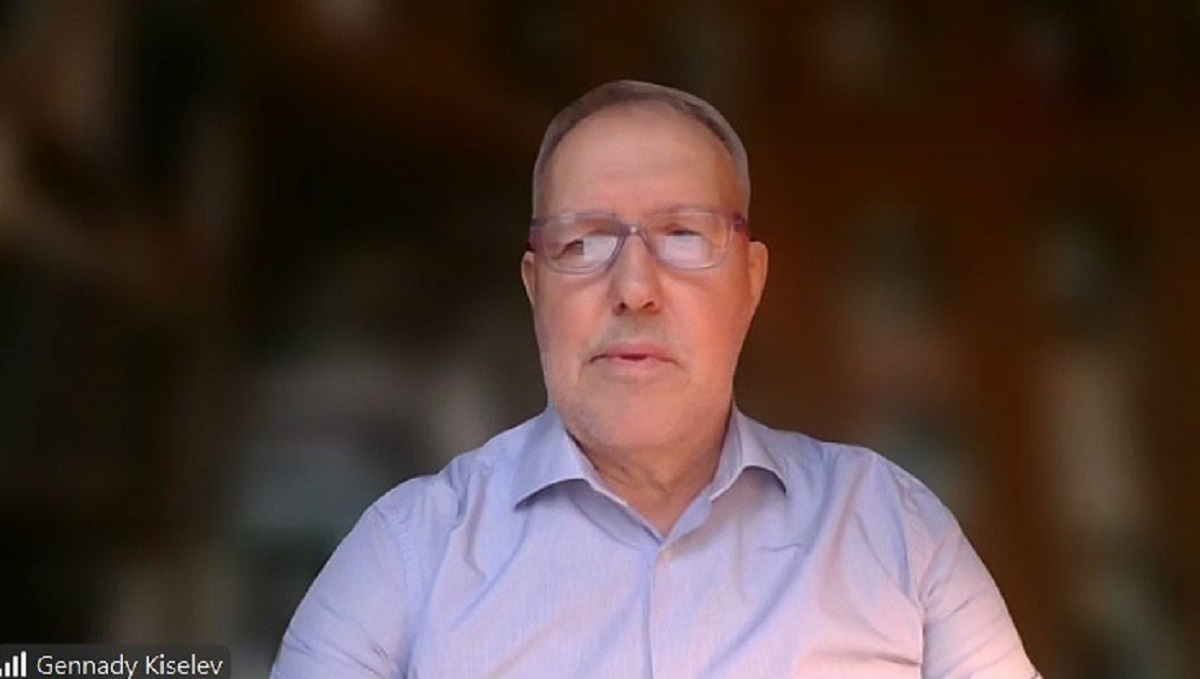From theatres to factories: translators and interpreters share their trade secrets at the St Petersburg University School on Translation and Interpreting
St Petersburg University has hosted the 6th Winter School on Translation and Interpreting, attracting over 750 experts and lecturers from Italy, Türkiye, Belarus, China, Kazakhstan, India, and other countries. Following tradition, the event featured leading industry experts as keynote speakers, who shared their insights and the most relevant information for translators’ and interpreters’ daily work.
Svetlana Rubtsova, Dean of the Faculty of Foreign Languages at St Petersburg University, a member of the Union of Translators of Russia, and a member of the Association of Translator and Interpreter Trainers, welcomed the event participants. In her opening remarks, she highlighted that the programme for the 6th Winter School on Translation and Interpreting was, as always, rich and diverse.
One cannot fail to notice the evolution of trends and topics in presentations and workshops. The audience remains engaged as each speaker strives to cover new, relevant, and inspiring subjects. We observe a shift in how issues are identified and addressed, with new approaches emerging.
Svetlana Rubtsova, Dean of the Faculty of Foreign Languages at St Petersburg University, a member of the Union of Translators of Russia, and a member of the Association of Translator and Interpreter Trainers
"We can confidently say that the St Petersburg University Winter and Summer Schools on Translation and Interpreting have become highly anticipated events in the translators’ and interpreters’ community," said Svetlana Rubtsova. "These events are significant for both speakers and participants and have become another hallmark of the Faculty of Foreign Languages."

The 6th St Petersburg University Winter School on Translation and Interpreting featured six plenary lectures by leading experts in the field. Topics included simultaneous and consecutive interpreting, written translation and conference interpreting, literary translation, and specifics of translation and interpreting in professional communication. The event participants were addressed by Gennady Kiselev, an award-winning literary translator in Italy and Russia, and Knight of the Order of Merit of the Italian Republic; Pavel Palazhchenko, an interpreter for the UN and the Council of Europe; Andrei Falaleyev, a conference interpreter who has interpreted for the presidents of the USA, the USSR, and the Russian Federation, and whose voice has been heard at multiple Olympic Games; as well as other experts.
The panel sessions focused on both European languages — English, Yiddish, Hebrew, Spanish, Italian, German, French, and Italian — and Oriental languages — Arabic, Bengali, Chinese, Korean, Turkish, and Farsi.
Within the Research Laboratory of Modern African Studies, Nadezhda Dubinina, co-author of the textbook We Learn Russian and language testing specialist at the Language Testing Centre of St Petersburg University, along with translator Stanislav Beletskiy from the Institute of Linguistics of the Russian Academy of Sciences, discussed the specifics of translating and localising the Russian language textbook into Swahili. "For example, even in simple phrases from the first lessons, such as 'This is a house' or 'This is mum', the pronoun 'this' required detailed explanation," shared Nadezhda Dubinina. "The thing is, in Swahili, there are 16 forms of 'this', each used depending on the noun class. Translating into the target reader’s language provides invaluable experience and helps us better understand people living in different countries on different continents who are learning Russian."
Svetlana Shchegoleva, a lecturer at St Petersburg University, discussed the specific issues of interpreting and translating at production companies and factories. She highlighted several challenges translators and interpreters may face when working in manufacturing industries, including: limited knowledge of the project’s subject matter; misunderstanding of technical terminology; a large number of abbreviations, along with professional jargon commonly used in conversations. For example, phrases like "Используем СУЗы" or "Идем на ПСИ по КП 002983, закрываем КТ9" can be very challenging. The professional jargon, combined with high noise levels in workshops, makes it difficult to hear and understand what is being said. To address these challenges, interpreters need to study the subject matter, undergo specialised training, and be skilled at analysing and finding the correct terms, stressed Svetlana Shchegoleva.
The participants in the 6th St Petersburg University Winter School on Translation and Interpreting had the privilege of meeting Franca Mancinelli, one of the most prominent Italian-language poets of her generation. Her poems have been translated into more than 15 languages. She has frequently participated in Russian poetry festivals and was honoured with the Russian-Italian Literary Award "Bella" in 2015.
During roundtable discussions, the participants explored strategies for preparing newcomers to work in emerging technological environments. They also discussed the challenges of interpreting and translating within cultural industries, such as museums, performing arts, and cinema. Roman Belyakov, First Soloist of the Mariinsky Theatre and winner of international competitions, shared his insights on these topics. At the traditional roundtable session on "Professional and Socio-Cultural Aspects of Interpreting and Translation", the participants delved into several key issues: adapting content for the global market; the differences between localisation and translation; the potential use of localisation as a tool for political and social influence; and the impact of gender stereotypes on translators’ work.
The 6th St Petersburg University Winter School on Translation and Interpreting also featured a discussion on women’s prose in Algeria, as well as workshops on subtitling, literary translation, and simultaneous interpreting.

